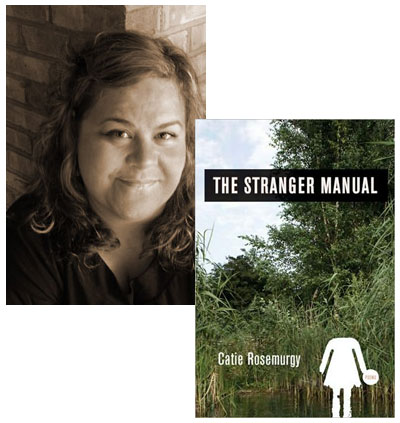Catie Rosemurgy, “Variorum”

At least most of the violence has been off the page.
Most of the violence, at least, has been kept off the page.
Most of the violence takes place off the page, as is always the case.
None of the violence is ever on the page.
Violence is never on the page.
The violence thus far has primarily taken place off the page.
The violence thus far has been implied.
For the most part, the violence is not on the page.
For the most part, this page is not violent.
The page really can’t be violent. At least.
The page, for the most part, takes place off the page!
At least the violence. At least for the most part.
As usual, for the most part, as is always the case.
As usual, most violence happens off the page.
As usual, the page. Mostly the violence.
Although this poem does not, many of the poems in The Stranger Manual concern “a sort of alter ego” (according to the jacket copy) named Miss Peach; see, for example, “The Monkey Whose Job It Used to Be to Sit on Miss Peach’s Shoulder Takes Up Olde Timey Music” (originally published in Blackbird), Miss Peach: The Novel” (Boston Review), or Miss Peach: Female Impersonator” (spotlighted by the National Endowment for the Arts to commemorate a grant given to the poet). You can read three more poems at Diagram, at least one of which refers to Miss Peach, and Kenyon Review published “New York, New York, New York, New York, New York.”
In an interview with Corduroy Books, Rosemurgy describes Miss Peach as “maybe more a concretization of a series of questions than a character… She’s a vehicle. She embodied ideas I didn’t know I was wrestling with.” She elaborated in an interview with Bomb: “I wanted to play with the notion of the fictional character sent lost and roaming outside of its usual territory (the novel or story). Miss Peach began as a satire, really, of female character types—the post-feminist super shopper, the doomed heroine of the romantic novel, the cruelly thin sorority girl. But as she morphed more and more and became increasingly pliable, ridiculous, and monstrous, I developed deeply unironic feelings for her and wanted to follow her storyline, though what happens to her only comes through in flashes.”
10 February 2010 | poetry |

 Our Endless and Proper Work is my new book with Belt Publishing about starting (and sticking to) a productive writing practice.
Our Endless and Proper Work is my new book with Belt Publishing about starting (and sticking to) a productive writing practice. 
